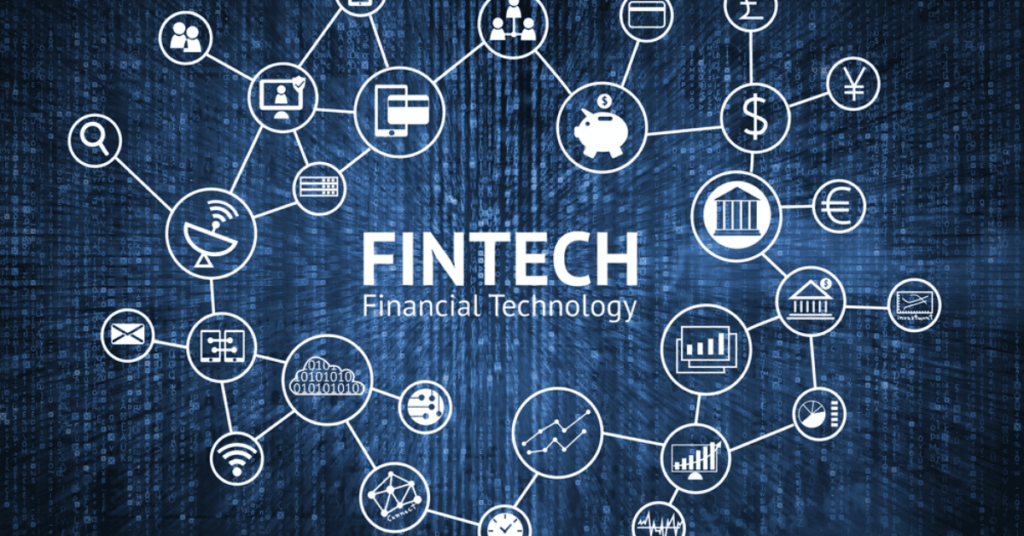Financial technology , or FinTech, is changing the way we interact with money. Whether it’s paying for something online, getting a loan, or managing investments, FinTech is making financial services faster, simpler, and more accessible. These innovations are not just improving convenience—they ’re also creating new opportunities for people and businesses worldwide.
Let’s explore some of the key FinTech developments that are shaping the future of finance.
What is FinTech, and Why is It Important?
FinTech refers to the use of technology to improve financial services. Un-like traditional banks, FinTech companies focus on creating user-friendly tools that make everyday financial tasks easier. These tools often come with lower costs and greater convenience, attracting people who want more control over their finances .

From payment apps to blockchain technology, FinTech is helping make financial services available to more people, including those who were previously underserved.
Innovations in FinTech
1. Digital Payments
Digital payments have become a part of everyday life. Apps like PayPal, Google Pay. and Venmo make sending and receiving money easy. Contactless payments using QR codes or mobile wallets are now common, offering speed and convenience for both consumers and businesses.
For international transactions, platforms like Wise and Revolut have made transferring money cheaper and faster than traditional banks, helping people save on fees,
2. Peer-to-Peer Lending
Peer-to-peer (P2P) lending platforms allow borrowers to get loans directly from individual lenders instead of going through a bank. Platforms like LendingClub make it easier for people to get personal loans at lower interest rates .
Small businesses also benefit from P2P lending, especially those that find it hard to qualify for traditional bank loans.
3. Robo-Advisors
Robo-advisors are online tools that help people manage investments. Using smart algorithms, these platforms, like Betterment and Wealthfront, provide personalized advice based on an individual’s goals and risk tolerance.
These tools are affordable and easy to use, making investing accessible to beginners who may not have the resources to hire a financial advisor.
4. Blockchain and Cryptocurrencies
Blockchain technology is the backbone of cryptocurrencies like Bitcoin and Ethereum. It provides a secure and transparent way to record transactions.
Beyond cryptocurrencies, blockchain is being used for:
- Smart Contracts: Automating agreements without needing a middleman.
- Decentralized Finance (DeFi): Offering services like lending and borrowing without relying on traditional banks.
This innovation is helping create financial systems that are more secure and efficient.
5. Buy Now, Pay Later (BNPL)
The ” Buy Now, Pay Later” trend is growing fast. Companies like Klarna and Afterpay let shoppers pay for purchases in installments instead of upfront.
This option is popular among younger consumers who prefer flexible payment methods over credit cards.
6. InsurTech
InsurTech is all about using technology to improve the insurance industry. Platforms like Lemonade use AI to offer personalized insurance plans, process claims quickly, and predict risks accurately.
This makes buying insurance simpler and faster for consumers while reducing costs for providers.
7. Open Banking
Open banking allows third-party apps to access your banking data securely (with your permission). This makes it easier to manage finances using tools that bring all your accounts and transactions together in one place.
Open banking encourages collaboration between banks and FinTech companies, creating better financial tools for users.
Challenges Facing FinTech
While FinTech is transforming finance, there are some hurdles;
- Data Security: Keeping customer information safe from cyber threats is a major concern.
- Regulations: FinTech companies must comply with complex laws that vary from country to country.
- Financial Literacy: Many people need education to fully benefit from these new tools .
Future of FinTech
The FinTech industry shows no signs of slowing down. With advances in artificial intelligence, blockchain, and machine learning, financial services will become even more efficient and accessible.
Exciting areas to watch include :
- Embedded Finance: Integrating financial tools into everyday apps, like offering loans on e-commerce sites.
- Sustainable Finance: Using FinTech to support eco-friendly investments and practices.
- Financial Inclusion: Expanding access to financial services for underserved communities worldwide.
FinTech is reshaping the financial world, offering faster, cheaper, and smarter ways to manage money. From digital payments to blockchain, these innovations are making finance more inclusive and efficient.
As technology evolves , FinTech will continue to bring new opportunities, helping individuals and businesses navigate the financial world with ease. This is just the beginning of a brighter, more connected financial future.
Frequently Asked Questions(FAQs)
What is FinTech?
FinTech, short for financial technology, refers to the use of technology to improve financial services. It includes tools and platforms that make everyday financial tasks like payments, investments, and borrowing faster, easier, and more accessible.
How is FinTech different from traditional financial services?
Unlike traditional banks, FinTech focuses on creating user-friendly, technology-driven solutions that offer lower costs and greater convenience. It often operates faster and provides services that are accessible through mobile apps and online platforms.
What are some examples of FinTech innovations?
Key FinTech innovations include:
Digital payment apps like PayPal and Google Pay.
Peer-to-peer lending platforms like LendingClub.
Robo-advisors for automated investment management.
Blockchain technology and cryptocurrencies.
Buy Now, Pay Later (BNPL) services like Klarna and Afterpay.How is blockchain technology used in FinTech?
Blockchain is a secure, decentralized ledger that powers cryptocurrencies like Bitcoin. It is also used for applications like smart contracts, decentralized finance (DeFi), and fraud prevention, making financial transactions more transparent and secure.
What does the future of FinTech look like?
The future of FinTech includes greater integration of artificial intelligence, blockchain, and machine learning. Trends like embedded finance, sustainable finance, and tools for financial inclusion will drive the industry forward, making financial services even more accessible and efficient.









